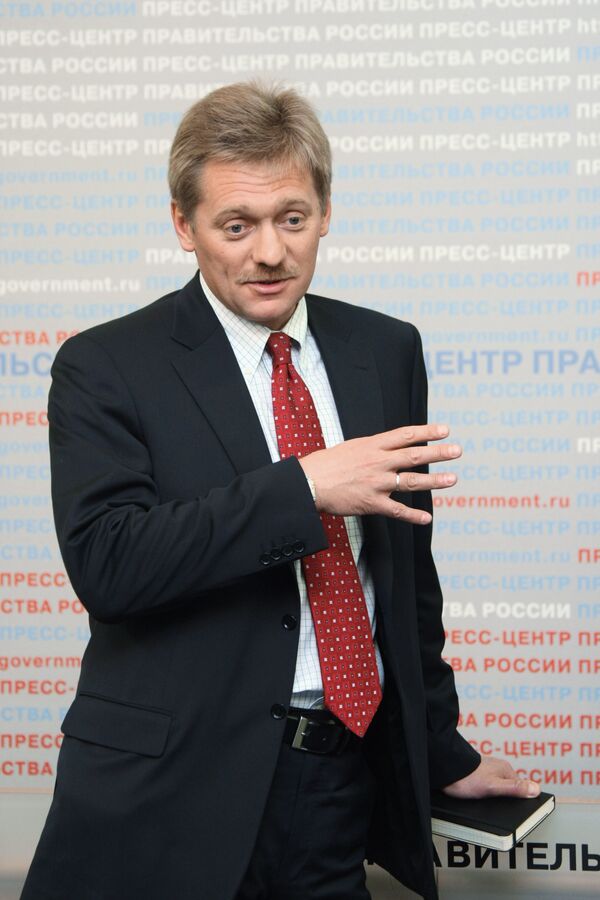MOSCOW, November 17 (RIA Novosti) – Russia will “respond adequately” to a bill passed by the US House of Representatives on Friday, which links normalized trade relations with Russia to the so-called “Magnitsky Act,” aimed at punishing Russian officials deemed to have violated human rights, Russian President's press secretary Dmitry Peskov said.
The House voted 365 to 43 to approve a bill simultaneously repealing the Jackson-Vanik restrictions on trade with Russia dating back to 1974 and imposing new rules linking trade and human rights following a debate in which both Republican and Democratic lawmakers voiced firm support for the legislation.
“We have received the news of this decision with deep regret…It clearly shows that some aspects of Russian-US relations have never become part of the ‘reset’,” Peskov said.
“An adequate response [to the Magnitsky Act] will be certainly forthcoming,” he said without specifying the possible retaliatory measures.
The US Senate is expected to approve its own version of the bill before being sent to President Barack Obama for signing. Obama has opposed linking the Magnitsky Act to normalizing trade ties with Russia, but is expected to sign the legislation into law.
“In a certain sense, the US administration becomes hostage to this legislation as it repeals the Jackson-Vanik restrictions on trade with Russia and simultaneously imposes the Magnitsky Act sanctions, leaving Obama with no choice but to sign it,” State Duma International Affairs Committee chair Alexey Pushkov commented on Friday.
Pushkov added that the Magnitsky Act is an attempt by certain circles in the United States to find new forms of applying political pressure on Russia.
“It is absolutely clear that this law will inevitably bring additional complications and new sense of controversy to the bilateral relations,” he said.
The Magnitsky Rule of Law Accountability Act with amendments seeks to impose visa bans and asset freezes on Russian officials allegedly involved in the torture and death of a 37-year-old Russian anti-corruption lawyer, Sergei Magnitsky, as well as in other gross human rights abuses in Russia.
Magnitsky was arrested on tax evasion charges in November 2008, just days after accusing police investigators in a $230-million tax refund fraud, and died after almost a year in the Matrosskaya Tishina pre-trial detention center in Moscow.
A probe into his death revealed that the lawyer, who was suffering from untreated pancreatitis and a heart condition, did not receive proper medical treatment. Rights activists pointed to multiple violations of the lawyer’s rights during his arrest and detention, including signs that he was beaten by prison guards hours before his death.
The U.S. State Department imposed visa bans on several dozen Russian officials in connection to the Magnitsky case in July 2011. In response, Russia has imposed travel bans on several U.S. officials.


